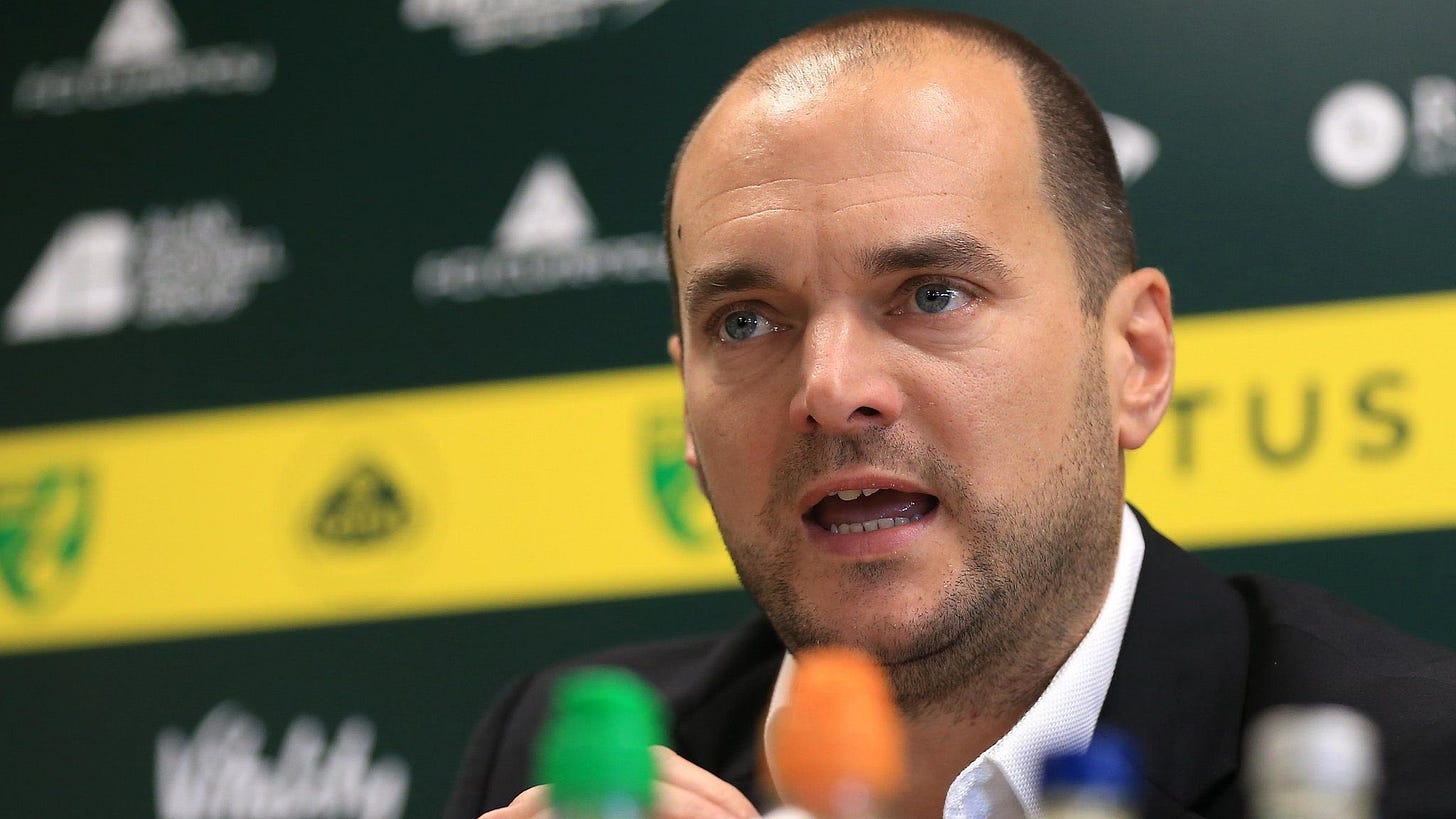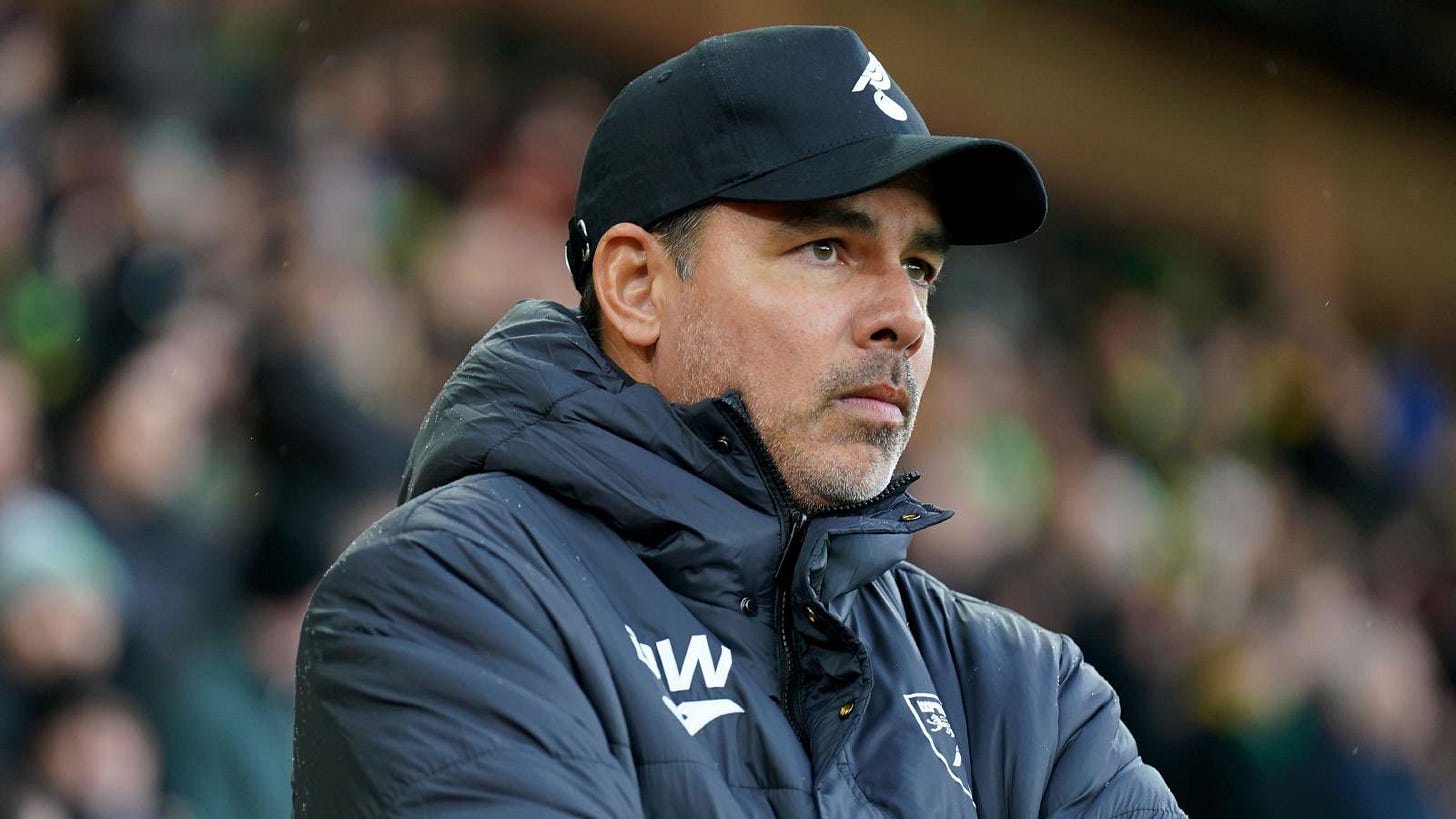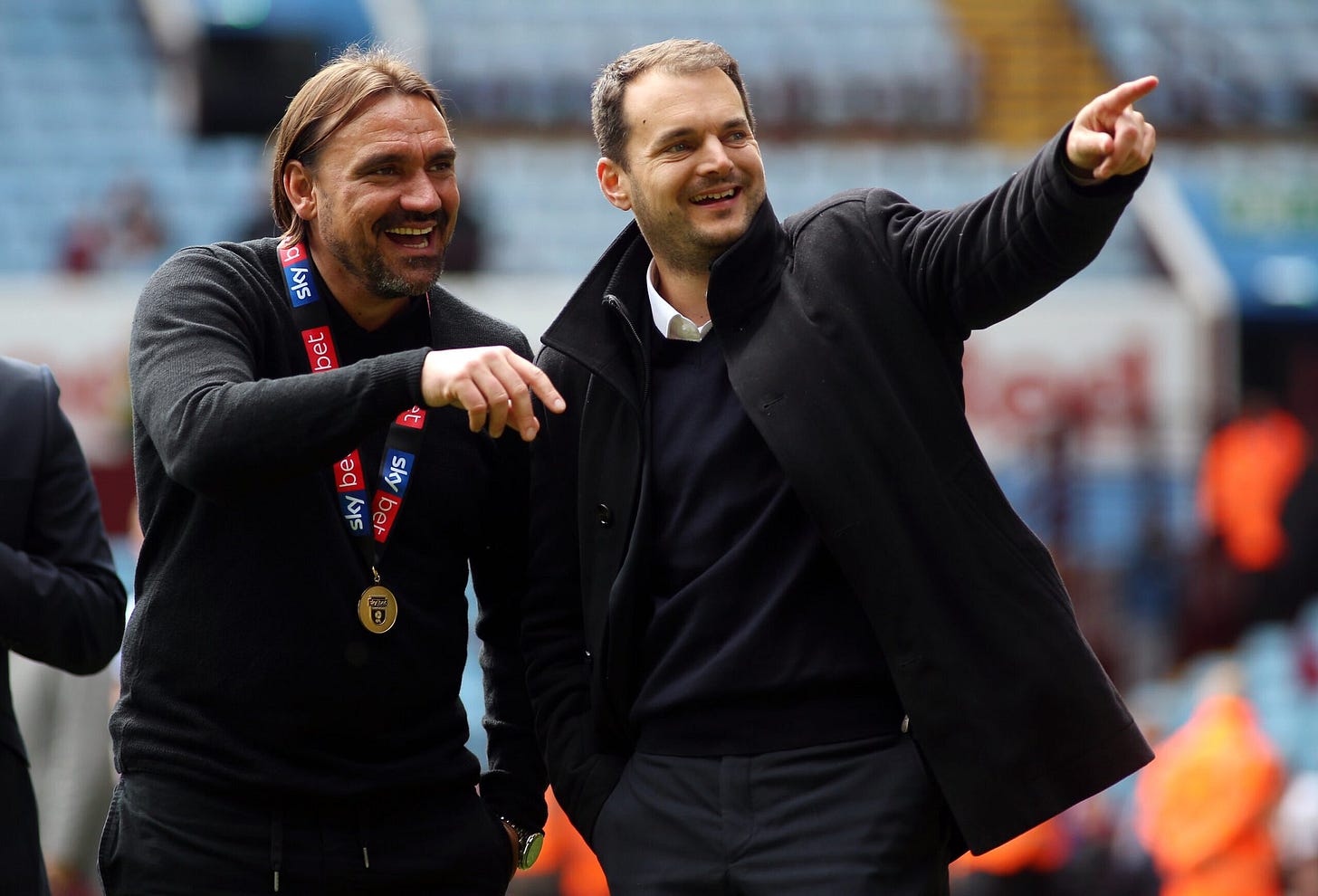Will history be kind to Stuart Webber?
The departing Norwich City sporting director oversaw some great times at Carrow Road but leaves the Canaries in the same hole they were in when he arrived.
News emerged on Tuesday that Stuart Webber’s time as Norwich City sporting director will shortly come to end. The announcement was received positively after a difficult season, ending an extraordinary period in the club’s history. During his six year stint, Webber oversaw two title wins, two relegations, and six summer transfer windows, at times enjoying a tense relationship with the fans. With so many mesmerising highs and morale-sapping lows in such a short time frame, it is difficult to assess how his time in East Anglia will be remembered.
Webber arrived from Huddersfield Town in April 2017 to much fanfare. The Terriers had been lauded for their innovative recruitment during his time in West Yorkshire, unearthing hidden gems from abroad to defy the odds and compete at the top of the table on a modest budget. Although Webber had already departed by the time promotion was eventually achieved in May, his work was credited as a crucial factor in the success.
Understandably, he followed the Huddersfield blueprint in Norfolk, plucking Daniel Farke from Borussia Dortmund II and employing him as head coach while once again delving into the German lower leagues to look for new talent on the pitch. However, this time results were not immediately forthcoming and going into the 2018 summer transfer window, things looked bleak. The Canaries had slipped into the bottom half of the Championship table, the parachute payments were running out and star player James Maddison was set to leave.
However, Webber managed to negotiate a £25m fee with Leicester City for Maddison - then a record price for a Championship player - and in his place came three significant arrivals that would turn the club’s fortunes around. Playmaker Emi Buendia was bought for a modest £1.5m from Getafe, while out of favour Newcastle keeper Tim Krul and Brondby forward Teemu Pukki joined on free transfers.
After a slow start, the Canaries romped to the title. All three signings established themselves as key players meanwhile fullbacks Max Aarons and Jamal Lewis emerged from the academy to form the spine of a fearless young team playing exciting, high-energy football. Once again, Webber had assembled a squad and coaching staff able to win promotion without breaking the bank and fans were cautiously optimistic about the club’s Premier League prospects.
However, at the exact moment Norwich needed to strengthen ahead of a step up into the top flight and had the funds to do so, investment was not forthcoming.
The £4m spent on youngster Sam McCallum, who didn’t play a minute that season, was the biggest summer outlay. Although the budget was always going to be among the lowest in the division and Webber himself was not controlling the purse strings, question marks over his and the owners’ strategy began to emerge. The Canaries won just five matches all season, finishing the campaign with nine straight defeats, and were relegated with a whimper.
The next two years followed a similar pattern. The Canaries instantly bounced back with a second Championship title win in 2020-21. Krul, Buendia and Pukki starred once more - this time alongside Tottenham loanee Oliver Skipp – before another poor summer of recruitment set the tone for a dismal 20th placed finish in the Premier League the following season. More money was spent in the 21-22 relegation campaign, but it was largely funded by the £33m sale of Buendia to Aston Villa and primarily invested in young players who were unable to make an immediate impact.
For a club trying to establish themselves as Premier League regulars after years of bouncing between the top two divisions, opting for youth was and still is a sustainable practice and the profit made on Buendia showed the potential financial rewards of such a policy. However, there was a feeling that in failing to build a squad which could at least compete in the top flight, Webber had neglected the here and now and had failed to learn from the mistakes he had made in the summer of 2019.
Just like two years earlier, the results were the same. The Canaries never looked like staying up, spending just one week of the season outside the relegation zone. Fans began to grow frustrated at the club’s apparent lack of ambition to maintain their Premier League status, and their anger was directed at Webber, who dismissed the protests as being the work of “a few blokes holding a bedsheet.”
This poorly thought-out approach in the transfer market placed additional pressure on the club going into the 2022-23 season. By waving the white flag in the Premier League, Webber and others in the Carrow Road boardroom had effectively asked fans to defer their gratification so this naturally made promotion an absolute necessity. When a 2-1 defeat at Luton Town in late December left the Canaries 12 points adrift of the top two, something had to change. Most damningly for Webber, the summer 2021 recruits, who were brought in with an eye on helping the team bounce back in the event of relegation, had either left or not set the division alight as expected.
Dean Smith, who had replaced Daniel Farke as head coach in November 2021, was sacked after just over a year in charge and Webber turned to David Wagner. The two worked together during Huddersfield’s promotion campaign six years earlier but in the meantime the German had struggled in stints on the continent with Young Boys and Schalke. The Canaries slid further down the table under his management, finishing in 13th place.
Like with the failed transfer strategy in the Premier League, the hiring of Wagner was yet another hint that Webber had failed to adapt and move away from an old formula, despite compelling evidence that it had passed its sell-by date. Further comments, such as his declaration that he had “zero interest” in the club’s women’s team, did little to repair his fractured relationship with the supporters and news of his departure was finally made public in June.
In the end, the parting of the ways felt inevitable; it was time to for Webber move on, just like the key individuals he employed. Daniel Farke and Emi Buendia left in 2021, Teemu Pukki said his goodbyes in May and Tim Krul is no longer the club’s first choice goalkeeper. He may go on to achieve great things elsewhere, but at Norwich the Webber cycle had come to its natural end.
Webber’s legacy largely depends on which metric is used to define success. Without him, the appointment of Daniel Farke in 2017 and excellent transfer business a year later would not have happened and without those decisions, Norwich supporters would probably not have the memories of two extraordinary title wins to look back on.
There have been improvements off the pitch too, but on it, Webber leaves the Canaries in the same place they were when he arrived six years ago. They have just missed out on a return to the Premier League despite paying one of the largest wage bills in the division, parachute payments will be stopped in twelve months and the supporters are unclear on where the club goes from here.
Plenty of fans are glad to shortly be seeing the back of Webber and many appreciate what he achieved in the early years. Feeling is so entrenched that his legacy cannot (and probably never will) be truly defined. If Norwich are to be successful in his absence, those in favour of his work will point to the foundations he put in place meanwhile others will cite his departure as a reason for the club’s ascent up the table.
The truth is somewhere in the middle and Webber’s reputation both at Norwich City and in wider footballing circles will largely depend on what he does elsewhere, making 23-24 a crucial season both for the club and their soon-to-be former sporting director.





